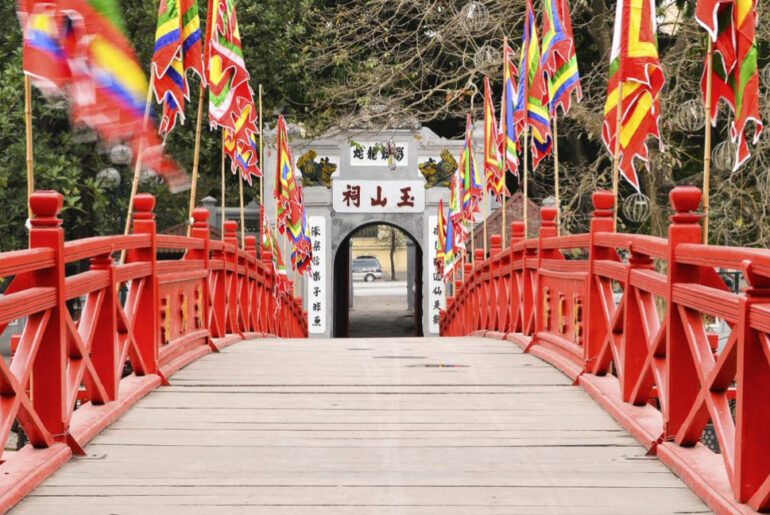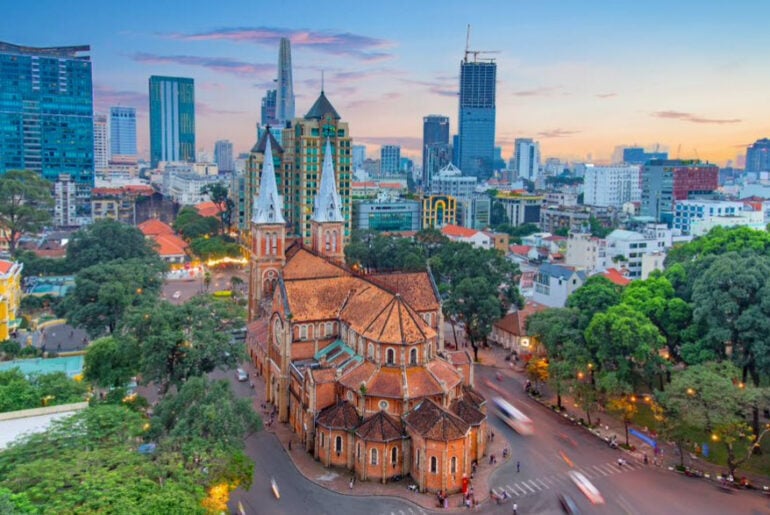Baker McKenzie’s Asia Pacific Employers’ Forum took place in Singapore on Thursday, 27 April 2023. You can access a number of related resources relating to employment issues and trends.
In March 2023, the government issued a draft of the Revised Law on Social Insurance for public comments. The Draft Law will be available for public comments until 30 April 2023. The Draft Law presents a number of notable changes to the currently applicable regulations that may bring about a significant impact if they are eventually approved in the final version of the Draft Law.
The long-awaited Decree on Personal Data Protection has finally been issued as Decree No. 13/2023/ND-CP.
On 29 March 2023, Deputy Prime Minister Tran Luu Quang signed Decision No. 319/QD-TTg, which approved the Anti-Counterfeiting and Consumer Protection in e-commerce by 2025 Plan. The Plan is set to increase anti-counterfeiting and consumer protection initiatives, build consumer confidence in online purchasing, and encourage transparent and healthy e-commerce activities in general.
On 21 March 2023, the Authority of Broadcasting and Electronic Information (ABEI) under the Ministry of Information and Communications released a white list specifying local service providers whose online websites and/or social networks are verified and suitable for online advertisements (“White List”). This is part of ABEI’s initiative to encourage brands and advertisers to prioritize displaying advertisements on non-violating websites.
At its 21st session (from 15 March to 20 March 2023), the National Assembly Standing Committee of Vietnam (NASC) considered and gave remarks on a number of essential draft legislation to be passed this year.
The public consultation round for the draft Law on Citizen Identification has recently ended. Among other objectives, the Draft Law aims at supplementing and integrating more citizen data into the National Database on Population so that Citizen ID Cards and the National e-Identification Application can be utilized more in both public services and private transactions, gradually cutting red tape.
On 9 January 2023, the National Assembly of Vietnam issued Law No. 15/2023/QH15 on Medical Examination and Treatment, which sets out a significant number of new regulations on healthcare and medical activities. The New Law will take effect on 1 January 2024, replacing the current Law No. 40/2009/QH12 on Medical Examination and Treatment dated 23 November 2009.
In brief
On 10 February 2023, the Government of Vietnam issued the new Decree No. 03/2023/NĐ-CP on regulating the functions, duties, powers and organizational structure of the Vietnam Competition Commission (“Decree 03”). Decree 03 will take effect on 1 April 2023.
Key takeaways
Decree 03 provides the following new key regulations:
The official English name of the authority will be the Vietnam Competition Commission (VCC). Meanwhile, the Vietnamese name is “Uy Ban Canh Tranh Quoc Gia”.
The VCC shall take over the role of the Vietnam Competition and Consumer Authority (VCCA) in the state management of competition matters under the Competition Law once Decree 03 comes into effect.
In depth
Since Competition Law No. 23/2018/QH14 (“Competition Law”) was passed back in 2018, the VCC was mandated as the leading authority responsible for the state management of competition matters under the Competition Law. However, there have been no further developments as to the establishment of this authority until recently, nearly four years after the Competition Law came into effect.
Specifically, on 10 February 2023, the Government of Vietnam issued Decree 03.
The VCC’s organizational structure shall consist of 15 officers, including one president and several vice presidents,1 and the headquarters shall be located in Hanoi.2 Within the VCC’s organizational structure will be the following departments:
Competition investigation agency
Secretariats of councils dealing with competition cases
Competition supervision board
Other units established under the VCC to perform the function of state management of competition, protection of consumers’ interests and management of multi-level marketing activities3
Pursuant to Decree 03, the VCC is tasked with handling competition proceedings in accordance with the Competition Law, controlling economic concentration activities, handling requests for exemptions and appeals of settlement decisions of competition cases, and performing the tasks of state management of competition, protection of consumers’ interests and management of multi-level marketing activities as prescribed by law.4
As for the operation of the current authority, the VCCA, pursuant to Decree No. 96/2022/ND-CP on the functions, tasks, powers and organizational structure of the Ministry of Industry and Trade of Vietnam (MOIT), the VCCA will continue to perform its functions and duties in accordance with current legal regulations until the Government stipulates the functions, tasks, powers and organizational structure of the VCC.5 Accordingly, by operation of law, once Decree 03 has taken effect (i.e., 1 April 2023), the VCCA’s functions shall cease.
Decree 03 shall also supersede Decree No. 07/2015/ND-CP dated 16 January 2015 on the functions, tasks, powers and organizational structure of the previous Vietnam Competition Council (i.e., “Hoi Dong Canh Tranh” in Vietnamese), and Decision No. 24/2015/QD-TTg dated 30 June 2015 of the Prime Minister promulgating the regulation on organization and operation of the Vietnam Competition Council.
Under Decree 03, the VCC shall also be edited into relevant provisions under Decree No. 40/2018/ND-CP on the management of multi-level marketing activities, Decree 99/2011/ND-CP detailing and guiding the implementation of a number of articles of the Law on Protection of Consumer Rights, and Decree 54/2020/ND-CP amending and supplementing a number of articles of Decree No. 127/2015/ND-CP on the organization and operation of inspection activities in the industry and trade sector.
The long-awaited arrival of the VCC also means that we can expect to see more enforcement activities by the competition regulators, not only within the area of merger control, but also the enforcement of regulations on anti-competitive agreements and abuse of market dominance.
The full Vietnamese text of Decree 03 can be found here.
1 Article 4, Decree 03.
2 Article 4, Decree 03.
3 Article 5, Decree 03.
4 Article 2, Decree 03.
5 Article 5, Decree No. 96/2022/ND-CP issued by the government on the functions, tasks, powers and organizational structure of the MOIT, dated 29 November 2022.
On 15 November 2022, the National Assembly of Vietnam passed the new law on anti-money laundering which will replace the current law from 1 March 2023. Reporting entities as covered in the new law should take into account certain key changes in anti-money laundering regulations.


